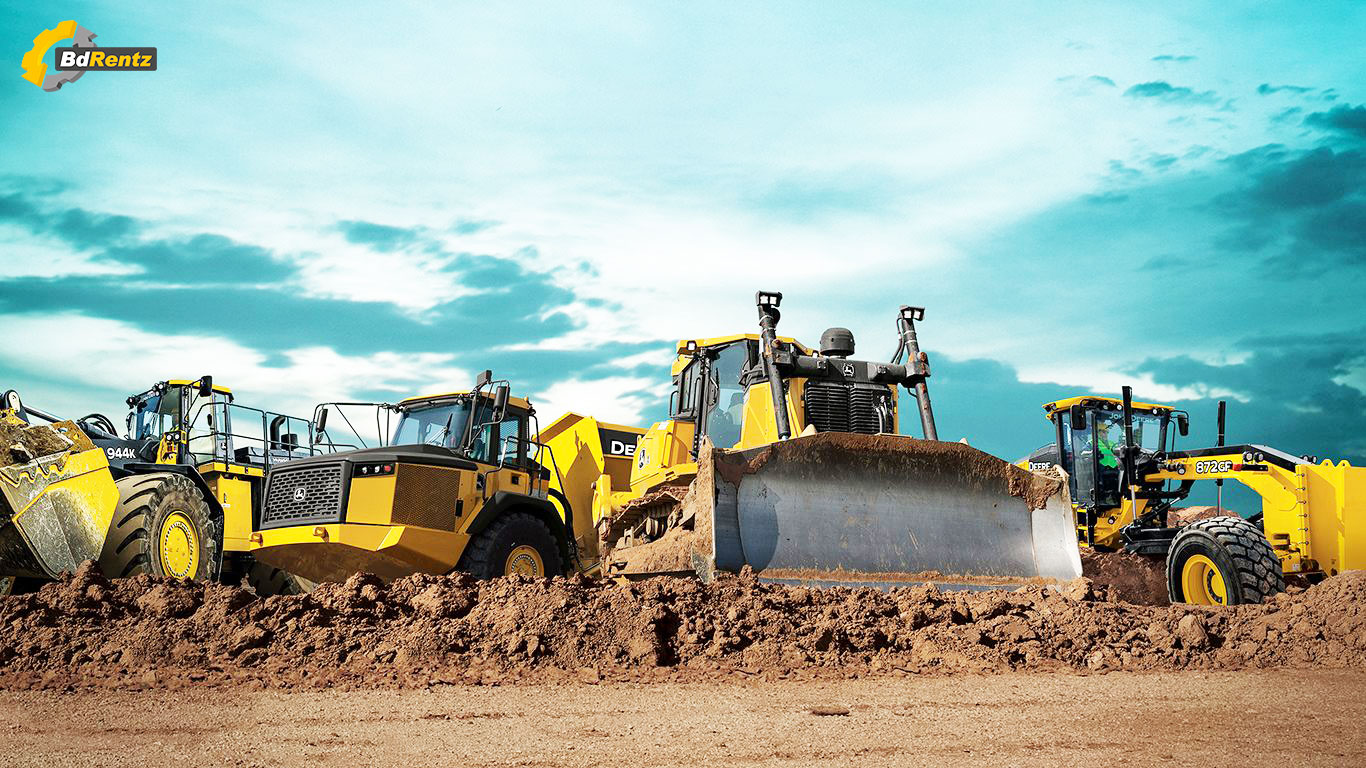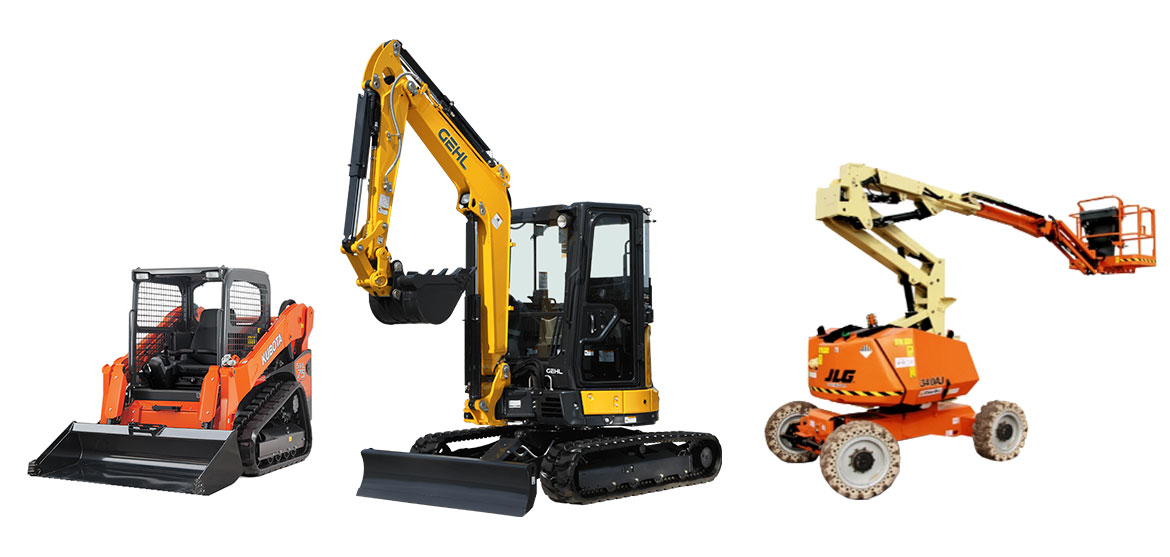Optimize Your Budget Plan by Comprehending the Costs Related To Building Equipment Rentals
Recognizing the complete scope of expenses connected with construction equipment services is crucial for maximizing your spending plan. While the first rental cost may appear straightforward, countless extra expenses-- such as transportation, fuel surcharges, and upkeep-- can rapidly gather, impacting your economic planning. Being aware of various costs and the intricacies of rental arrangements can aid prevent unexpected monetary burdens. What strategies can be employed to successfully handle these prices and make certain a more effective rental experience?
Introduction of Rental Costs
When taking into consideration building devices rentals, comprehending the associated expenses is paramount for efficient budgeting and job planning. Rental expenses can vary dramatically based upon a number of aspects, consisting of tools type, period of rental, and area. The preliminary rental charge commonly reflects the equipment's market need and its connected operational abilities, influencing the total cost.
Along with the base rental price, supplementary costs might occur, such as transport costs, gas surcharges, and maintenance fees. It is necessary to make up these additional expenses to accurately analyze the overall cost of renting out equipment. In addition, the rental duration can influence pricing; longer services may qualify for reduced rates, while short-term rentals may incur higher everyday costs.

Break Down of Rental Prices
A comprehensive understanding of rental prices is essential for specialists and project managers aiming to maximize their spending plans. Rental prices for building and construction tools normally include a number of components, including base rates, time-based charges, and usage costs.
Base prices are the core charges related to the service of the tools, often determined by the kind and dimension of the machinery. These prices can vary considerably, influenced by aspects such as devices demand, availability, and regional market patterns. Time-based costs, which might be daily, weekly, or monthly, offer to fit various job timelines and rental durations.
In addition, rental rates may consist of use fees, which are relevant when devices is utilized beyond a defined limit, making certain that the rental company can make up wear and tear. Seasonal demand fluctuations can likewise affect rental prices, with peak building seasons usually commanding greater costs.
Furthermore, recognizing the rental business's plans concerning maintenance and insurance policy can provide additional insight right into the overall expense structure. By assessing these parts, contractors can make enlightened choices, guaranteeing the choice of rental devices aligns with both project requirements and budget restraints.
Additional Fees to Think About
Recognizing the ins and outs of additional costs is vital for contractors to handle their total service expenses efficiently. Past the common rental rates, different additional charges can considerably influence the overall price of devices leasing. These costs commonly consist of shipment and pick-up fees, which can differ based upon distance and logistics Recommended Reading involved in transferring the devices to and from the job website.
In addition, some rental companies may enforce fuel additional charges if the tools is returned with much less gas than when leased. It is additionally important to know possible cleaning charges, especially for specialized tools that calls for complete upkeep after use.

Thoroughly examining the rental arrangement and clearing up these additional charges ahead of time can aid service providers guarantee and avoid unanticipated costs that budget plans continue to be intact throughout the job lifecycle.
Maintenance and Repair Service Expenditures
Regular maintenance and repair work expenditures are usually overlooked elements that large construction equipment can considerably affect the total expense of construction tools rentals. When renting out equipment, it is important to consider not only the rental costs but also the prospective expenses related to keeping the machinery in ideal operating problem.
Numerous rental firms consist of standard upkeep as part of the rental arrangement; nevertheless, more substantial fixings or unforeseen break downs can bring about extra expenses. It's necessary to evaluate the rental agreement thoroughly to understand what upkeep services are covered and what obligations fall on the tenant.
In addition, devices that is not properly maintained can lead to inefficiencies on duty site, possibly triggering hold-ups and boosting job prices. To minimize these threats, it is recommended to carry out routine examinations and keep open communication with the rental provider regarding any type of problems that emerge during usage.
Insurance and Responsibility Expenses
Insurance policy and obligation expenses are vital elements that can substantially impact the overall cost of building and construction equipment leasings (dozer rental). These prices guarantee that both the rental business and the customer are shielded from potential monetary losses emerging from mishaps, damages, or theft throughout the rental period

Additionally, clients should understand any deductibles or exclusions in the insurance policy, as these can impact prospective out-of-pocket expenses. Understanding the terms of any kind of insurance protection is vital to prevent unanticipated expenses. Eventually, budgeting for insurance and obligation costs can aid guarantee a smoother rental experience and safeguard versus financial threats related to construction jobs.
Conclusion
Finally, an extensive understanding of the prices connected with building and construction equipment services is essential for efficient budget plan administration. By examining rental rates, additional fees, upkeep costs, and insurance people, organizations and requirements can minimize unforeseen expenses. This critical approach not only boosts cost-effectiveness yet additionally makes certain that tasks advance efficiently and efficiently. Inevitably, educated decision-making regarding devices services contributes to the overall success of construction undertakings.
Rental prices can differ substantially based on numerous elements, including devices type, period of rental, and area (construction equipment rentals). The rental duration can influence rates; longer leasings may certify for reduced rates, while short-term rentals might incur greater everyday costs
By performing thorough research study and engaging with trustworthy rental business, contractors can efficiently navigate the complexities of rental prices, ultimately maximizing their financial resources.
Past the basic rental prices, various supplemental costs can dramatically influence the complete expense of tools leasing. Rental firms usually supply liability insurance policy that covers injuries to 3rd celebrations or damages to building, while tools damages insurance can cover the cost of repairs or replacement if the rented out tools is damaged.